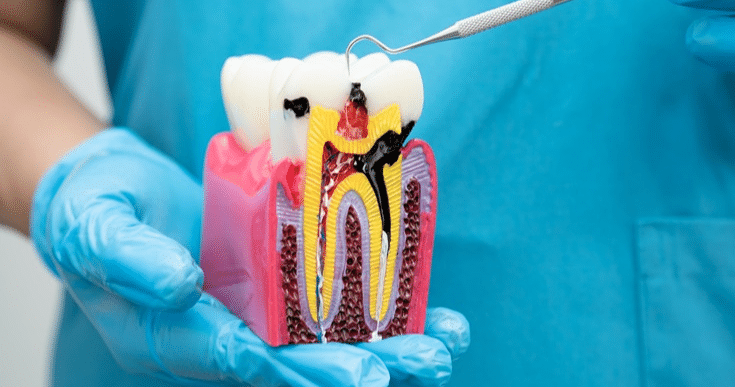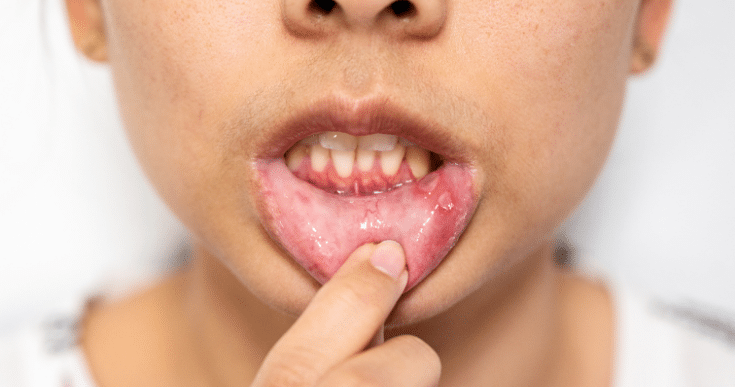
Getting a root canal can be quite daunting, but it’s necessary to treat an infected tooth. If you find yourself dealing with an infection after the procedure, here are some things you should know about dealing with an infected root canal.
Causes of Infected Root Canals
Root canal treatments save teeth that have become severely damaged due to decay or severe trauma, such as cracking or breaking. Damage caused by these issues can cause bacteria to enter the tooth’s pulp chamber, leading to infection and inflammation. If not treated in time, the infection can spread to the surrounding tissues and cause discomfort or pain.
Signs of Infection
One of the most common signs that your root canal may have become infected is persistent pain after the procedure. Other symptoms include sensitivity to extreme temperatures as well as swelling and redness around the affected area. In some cases, you may also experience drainage from the site where your root canal was performed. It’s important to visit your dentist if you notice any of these warning signs so they can diagnose the issue and offer treatment options for an infected root canal.
Diagnosing An Infected Root Canal
If your dentist suspects that you may have an infected root canal, they’ll run a series of tests to confirm their diagnosis. This may include taking the necessary X-rays or performing a biopsy to examine the inside of the tooth. Once diagnosed, your dentist will recommend the appropriate course of treatment for you.
Treating An Infected Root Canal
The most common form of treatment for an infected root canal is a round of prescription antibiotics taken over a period of time (usually one week). During this time, it’s important to practice good oral hygiene and avoid consuming sugary foods or drinks, as these things can aggravate the infection. After finishing the antibiotics, another round of tests may be done to make sure the infection has been completely eliminated. If not, another round of antibiotics may be necessary.
In some cases, surgery may also be recommended if antibiotics are not enough to eliminate the infection. This will involve your dentist opening up the area and removing any infected tissue or debris that is present. After this procedure is completed, your dentist will likely recommend follow-up visits on a regular basis to ensure that the infection does not recur.
Prevention of Infected Root Canals
The best way to prevent an infected root canal is by practicing good oral hygiene and visiting the dentist regularly for checkups and cleanings. Making sure you brush at least twice a day with toothpaste containing fluoride and floss at least once a day can go a long way in preventing cavities and other issues that may lead to an infected root canal. Additionally, you must visit a dentist near your location every six months for regularly scheduled checkups.
1. Avoid Teeth Grinding
Teeth grinding, or bruxism, can increase the risk of infection if not addressed and treated properly. If you think you may be suffering from teeth grinding, it’s important to consult your dentist as soon as possible so they can recommend the best treatment options.
2. Proper Diet
It’s also important to maintain a healthy diet that is low in sugar and processed foods. Eating sugary or acidic foods can cause bacteria to thrive, leading to cavities and other issues. Additionally, it’s important to stay hydrated by drinking plenty of water throughout the day and avoiding beverages containing high amounts of sugar or caffeine.
3. Stress Management
High levels of stress can also weaken your immune system and make you more prone to infections, so it’s important to find ways to manage your stress levels on a daily basis, such as through exercise, yoga, meditation, or simply taking some time for yourself each day.
Conclusion
Root canal treatment has become a common procedure used today due to its effectiveness in treating damaged or decayed teeth. However, if not done properly, it can lead to an infected root canal that can be difficult to treat. To prevent this from happening, it’s important to practice good oral hygiene and maintain a healthy diet while also taking steps to reduce stress levels as much as possible. Additionally, visiting your dentist regularly for checkups is essential in order to catch any issues before they become serious problems.
FAQs:
Answer: The most common signs of an infected root canal include severe toothache pain, tenderness around the affected area, and drainage from the site where your root canal was performed.
Answer: The most common form of treatment for an infected root canal is a round of prescription antibiotics taken over some time. In some cases, surgery may also be recommended if antibiotics are not enough to eliminate the infection.
Answer: The best way to prevent an infected root canal is by practicing good oral hygiene and visiting the dentist regularly for checkups and cleanings. Additionally, it’s important to avoid teeth grinding, maintain a healthy diet that is low in sugar and processed foods, and manage stress levels daily.




